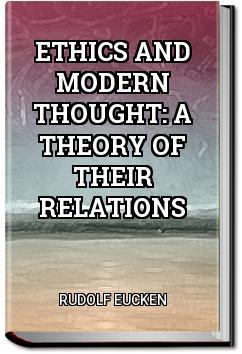UNLIMITED Audiobooks and eBooks
Over 40,000 books & works on all major devices
Get ALL YOU CAN for FREE for 30 days!
Ethics and Modern Thought: A Theory of Their Relations
Rudolf Eucken
How does All You Can Books work?
All You Can Books gives you UNLIMITED access to over 40,000 Audiobooks, eBooks, and Foreign Language courses. Download as many audiobooks, ebooks, language audio courses, and language e-workbooks as you want during the FREE trial and it's all yours to keep even if you cancel during the FREE trial. The service works on any major device including computers, smartphones, music players, e-readers, and tablets. You can try the service for FREE for 30 days then it's just $19.99 per month after that. So for the price everyone else charges for just 1 book, we offer you UNLIMITED audio books, e-books and language courses to download and enjoy as you please. No restrictions.
The "social" ethics thus developed are further enhanced by the growing conviction that the traditional form of life in the community is capable—nay needf. . . Read More
Try now for FREE!

"Love your service - thanks so much for what you do!"
- Customer Cathryn Mazer
"I did not realize that you would have so many audio books I would enjoy"
- Customer Sharon Morrison
"For all my fellow Audio Book & E-Book regulars:
This is about as close to nirvana as I have found!"
- Twitter post from @bobbyekat



Community Reviews
An outdated collection of essays. Clear, yet elucidating almost nothing. Eucken may have deserved his Nobel Prize; but just as deserved seems to be the worldly abandon of Eucken.
Having read another book by a Nobel-winning philosopher (Henri Bergson - 1927) I was a bit leary of taking on another philosophically brilliant work that falls short on literary merit. Eucken's work here was a pleasant surprise with its clear, readable accessibility. Lacking a Nobel award for Philos
Underwhelming arguments, at best.